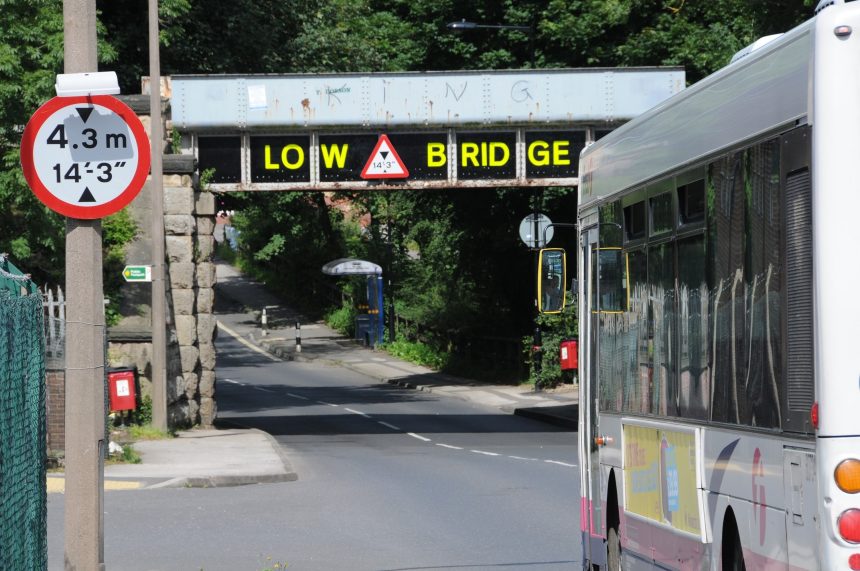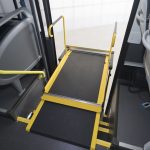The latest plea from the Senior Traffic Commissioner Kevin Rooney to operators and the industry to address the problem of bridge strikes follows several headline-making incidents involving PSVs. They included one in Eccles, Greater Manchester, on 21 July in which 20 people were injured – three of them seriously.
Each bridge strike incident costs an average of £13,000 and, as well as the cost for operators, there is the damage to the industry’s reputation – not to mention the human cost.
While coaches and buses account for only around 50 of the approximately 1500-2000 bridge strikes which happen every year in the UK, this poses the question of why they still occur at all, given the technology at operators’ disposal.
The number of bridge strikes has been reducing – down from more than 2000 in 2017-18 to 1532 in 2023-24. However, is it realistic to get this to zero?
Technology that uses GPS to warn drivers about upcoming low bridges may be partly responsible for the drop, but perhaps an over-reliance on technology is contributing to some of the remainder.
Such systems, of course, should be merely an aid, a final backstop where all else fails. Operators need to have systems in place to ensure the warnings aren’t needed, making sure “every potential risk” is “identified and controlled”, as Mr Rooney says. Drivers likewise need to follow every required procedure, use only approved navigation devices, have their eyes on the road and not rely on the technology.
One might conclude that driverless technology could stop bridge strikes happening. After all, if intelligent speed assistance can already slow down a vehicle without the driver’s intervention, so, in theory, autonomous systems could bring it to a complete and gradual stop.
However, bridge strikes will continue to be a threat, wherever there remains the possibility for a human to override the system. Even now, a high rate of false alarms can lead some drivers to ignore the technology, which must be one significant cause of incidents. In an autonomous future, if drivers are allowed to take over control, there is still the chance of a bridge strike.
Given that buses alone travel around one billion miles per year in the UK, total elimination of bridge strikes may be impossible.
However, that is no reason for complacency. Operators should take the issue of bridge strikes very seriously and put in place all the necessary protocols. The industry, as Mr Rooney suggests, needs to share best practice and, as he adds, work together to fix the problem.


























